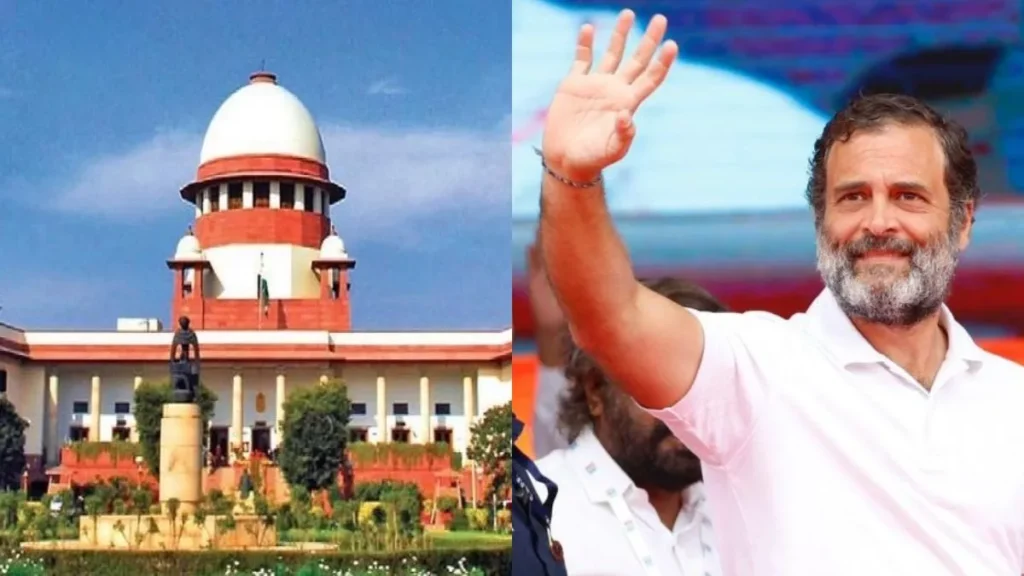A plea is made in the Supreme Court for the restoration of Rahul Gandhi membership

A recent plea filed in the Supreme Court challenges the reinstatement of Rahul Gandhi’s Lok Sabha membership. This reinstatement was made through a notification by the Lok Sabha
Legal Contention: Operation of Law and Disqualification
The central argument revolves around constitutional and statutory provisions. It asserts that under Article 102 and 191 of the Indian Constitution, along with Section 8(3) of the Representation of the People Act, 1951, an MP or MLA, after being legally convicted, should remain disqualified from holding public office until acquitted by a higher court.
CrPC Section 389: Suspension of Sentence vs. Suspension of Conviction
The plea delves into the legal nuances of CrPC Section 389. It clarifies that Section 389 allows the suspension of a sentence and the release of the appellant on bail, but it doesn’t authorize an appellate court to suspend the underlying conviction itself.
Precedent from the Lok Prahari Case
Reference is made to a significant precedent set by the Supreme Court in the Lok Prahari vs. Election Commission of India and others (2018) case. This ruling established that when an appellate court stays the conviction of an MP or MLA under Section 389 of the CrPC, the disqualification clauses in Section 8 of the Representation of the People’s Act, 1951, no longer apply.
Background of the Controversy
The legal dispute involving Rahul Gandhi began with his contentious statement during a political rally in Karnataka’s Kolar in 2019.
Conviction and Disqualification
Subsequently, Rahul Gandhi faced a defamation case filed by Bharatiya Janata Party (BJP) MLA Purnesh Modi in Gujarat. He was convicted and sentenced to two years in prison earlier this year, leading to his disqualification from the Lok Sabha.
Disqualification Provisions
The Representation of the People Act, 1951, states that a person shall be disqualified from membership in Parliament or state legislatures if convicted and sentenced to imprisonment for two years or more.
Supreme Court Intervention and Conviction Suspension
After exhausting legal remedies, Rahul Gandhi approached the Supreme Court, challenging the Gujarat High Court’s denial of a stay on his conviction.
In conclusion, the plea challenging the restoration of Rahul Gandhi’s Lok Sabha membership raises fundamental legal questions about the disqualification of elected representatives in India. It hinges on constitutional and statutory interpretations, CrPC Section 389 intricacies, and a precedent from the Lok Prahari case. This legal battle highlights the significance of addressing disqualification, conviction, and sentence suspension issues in parliamentary representation. The Supreme Court’s decision will have broad implications for the intersection of law and politics in India.